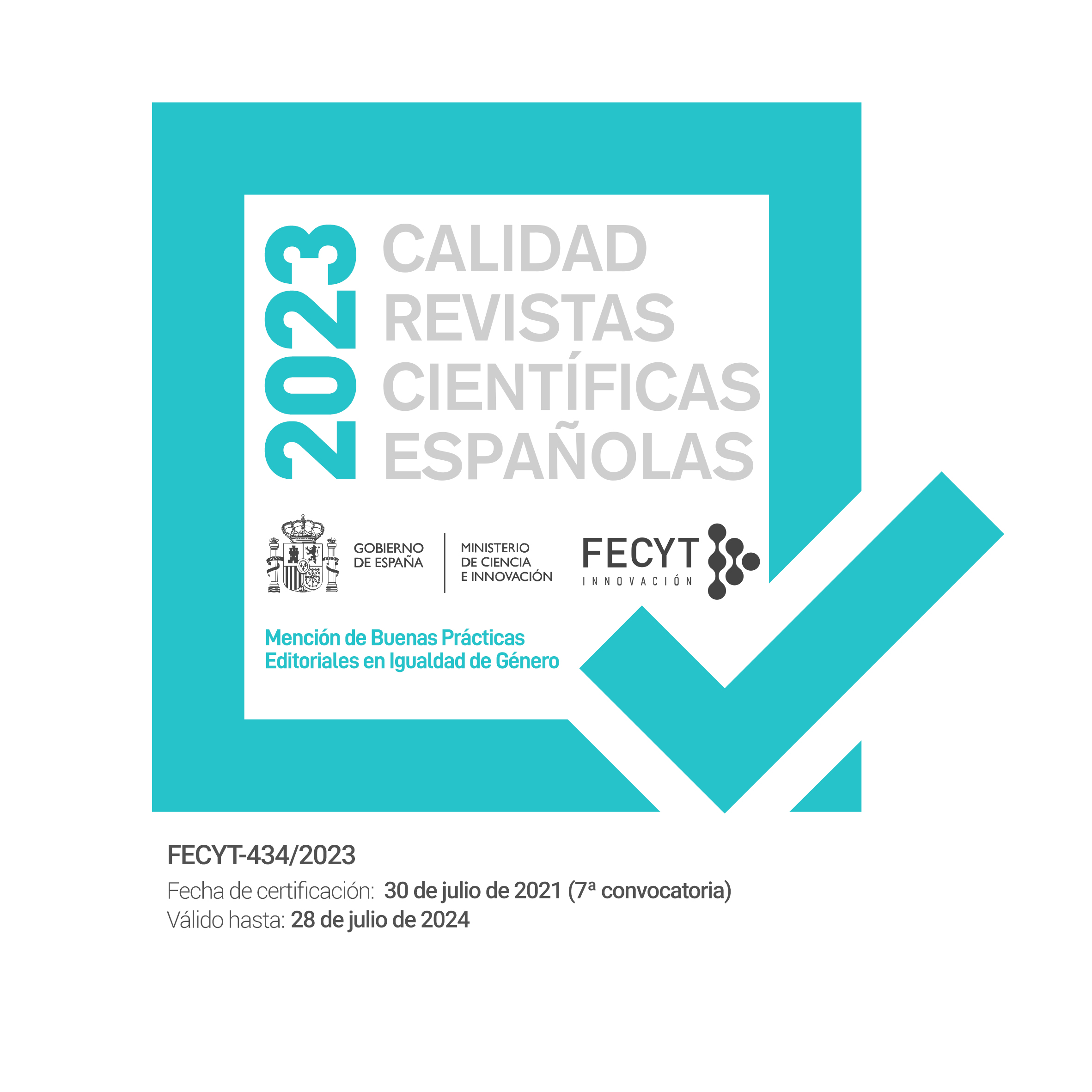Gendering migration: securitization and integration media narratives in Europe
Abstract
Migration has become an extremely important and complex phenomenon of our time. Mass emigration, and in particular forced displacements, has never been more intense than nowadays. At the same time, we are also witnessing the largest spread of anti-immigrant sentiment seen in decades. Migration is inevitably attached to generate economic, social, cultural, and political profound changes, which should involve political actors, i.e. governments, in the creation of a framework for understanding the presence of immigrants; not as a threat but as an opportunity. The European Union cultivation of a “securitized” migration discourse aggravated this issue, with particular structural and gendered implications. Women account for a growing share of migrants, are particularly vulnerable to the effects of securitization, an their protection has emerged as a major challenge for governments and NGOs. This research will delve into recent developments of the immigration-integration nexus at the European level and will analyze the tensions present in media discourses, and how their implications affect women’s experiences.
Keywords: Migration; Gender; Securitization; Refugees; Discourses.
References
Benedicto, Ainhoa R, Brune, Pere. “Building walls: Fear and securitization in the European Union, Report 25.” tni 11.09.2018
[https://www.tni.org/files/publication-downloads/building_walls_-_full_report_-_english.pdf]
Bhabha, Jacqueline, and Shutter, Sue. Women's Movement: Women under Immigration, Nationality and Refugee Law. United Kingdom, 1994.
Boyd, Monica, and Grieco, Elizabeth. “Women and migration: incorporating gender into international migration theory.” Migration information source 1.35 (2003).
Block, Laura. “On Female Victims and Parallel Worlds: Gender and Ethnicity in Policy Frames of Spousal Migration in Germany.” Contesting Integration, Engendering Migration (2014): 242‒260.
Buraschi, Daniel, and Aguilar Idánez, María José. “Indiferencia, fronteras morales y estrategias de resistencia.” Documentación Social 180 (2016): 127-147.
Buzan, Barry, Wæver, Ole, and de Wilde, Jaap. Security: A New Framework for Analysis. Chile, 1998.
Donato, Katharine M, Gabaccia, Donna, Holdaway, Jennifer, Manalansan, Martin, and Pessar, Patricia R. “A Glass Half Full? Gender in Migration Studies.” International Migration Review 40.1 (2006): 3-23
Doezema, Jo. “Ouch! Western feminists wounded attachment to the third world prostitute.” Feminist Review 67.1 (2001): 16-38.
Fineman, Martha Albertson. “The vulnerable subject: Anchoring equality in the human condition.” Yale Journal of Law and feminism 20 (2008): 8-9.
Freedman, Jane. “Sexual and gender-based violence against refugee women: a hidden aspect of the refugee crisis.” Reproductive health matters 24.47 (2016): 18-26.
Gerard, Alison. The securitization of migration and refugee women. London, 2014.
Guerry, Linda. Le genre de l’immigration et de la naturalisation. Lyon, 2013.
Green, Nancy L. “Changing Paradigms in Migration Studies: From Men to Women to Gender.” Gender & History 24. 3(2012): 782-798.
Hagelund, Anniken. “For Women and Children The Family and Immigration Politics in Scandinavia.” The Family in Question: Immigrant and Ethnic Minorities in Multicultural Europe. Chicago (2008): 71-88.
Harzig, Christiane. Immigration policies: a gendered historical comparison. In Crossing Borders and Shifting Boundaries. VS Verlag für Sozialwissenschaften. Wiesbaden, 2003.
Hirata, Lucie Cheng. “Free, Indentured, Enslaved: Chinese Prostitutes in Nineteenth- Century America.” Journal of Women in Culture and Society 5.1(1979): 3-29.
Huysmans, Jef. The politics of insecurity: Fear, migration and asylum in the EU. London, 2006.
IOM. “World Migration Report.” publications.iom 01.09.2018
[https://publications.iom.int/system/files/pdf/wmr_2018_en.pdf.]
Jones, Reece. Violent Borders. Londres, 2016.
Khalil, Zeinab. “Security for Whom? Unpacking the Gendered Impact of EU Securitized Migration.” Jadaliyya 29.08.2018
[http://www.jadaliyya.com/Details/34701]
Kofman, Eleonore, Saharso, Sawitri, Vacchelli, Elena. “Gendered perspectives on integration discourses and measures.” International migration 53.4 (2015): 77-89.
Kofman, Eleonore. “Family-Related Migration: A Critical Review of European Studies.” Journal of Ethnic and Migration Studies 30.2 (2004): 243-262.
Kofman, Eleonore. “Gendered Labour Migrations in Europe and Emblematic Migratory Figures.” Journal of Ethnic and Migration Studies 39.4 (2013): 579-600.
Kosnick, Kira. “Sexuality and Migration Studies: The Invisible, the Oxymoronic and Heteronormative Othering.” Framing Intersectionality: Debates on a Multi-Faceted Concept in Gender Studies. Farnham (2010): 121-135.
Luthman, Iris. The Gendered Implications of Securitized Migration: A qualitative look at how the securitization of migration affects women's experiences of seeking asylum in one of the world's most gender equal countries. Upsala, 2017.
Lyon, Dawn. “The Organization of Care Work in Italy: Gender and Migrant Labor in the New Economy.” Indiana Journal of Global Legal Studies 13.1(2006): 207-224.
Mahler, Sarah J, Pessar, Patricia R. “Gender Matters: Ethnographers Bring Gender from the Periphery toward the Core of Migration Studies.” The International Migration Review 40.1 (2006): 27-63.
Merri, Sally. Gender violence: A cultural perspective. Chichester, 2009.
Medecins Sans Frontieres. “Calais Jungle.” MSF 19.07.2018
[https://www.msf.org/france-msf-continues-assist-refugees-calais]
Merino Sancho, Víctor. “El sistema Europeo Común de Asilo ante las demandas de asilo por razones de género.” Documentación social 180 (2016): 185-201.
Mohanty, Chandra Talpade. “Under Western Eyes: Feminist Scholarship and Colonial Discourses.” boundary 2.12(1986): 333-358
Mohanty, Chandra Talpade. Feminism without Borders: Decolonizing Theory, Practicing Solidarity. Duke, 2003.
Mohanty, Chandra Talpade. “Imperial Democracies, Militarized Zones, Feminist Engagements.” Economic and Political Weekly of India 46.13(2011): 76-84.
Morokvašić, Mirjana. “Gendering Migration.” Migracijske i etničke teme 30 (2014): 355-378.
Morokvašić, Mirjana. “Birds of Passage Are Also Women...“ International Migration Review 18(1984): 886-907.
Morokvašić, Mirjana. “Migration, Gender, Empowerment.” Gender Orders Unbound: Globalisation, Restructuring and Reciprocity, Farmington Hills (2007): 69-97.
Morokvašić, Mirjana. “Invisibilité continue, Cahiers du genre.” Migrantes et mobilisées 51(2011): 25-47.
Morokvašić, Mirjana. “Settled in Mobility: Engendering Post-wall Migration in Europe.” Feminist Review 77.1(2004): 7-25.
Olwig, Karen Fog. “Integration’: Migrants and Refugees between Scandinavian Welfare Societies and Family Relations.” Journal of Ethnic and Migration Studies 37. 2 (2010): 179-196.
Otto, Dianne. “Lost in translation: re-scribing the sexed subjects of international human rights law.” International Law and its others. Cambridge (2006): 318-356.
Peroni, Lourdes. “Violence against migrant women: The Istanbul convention through a postcolonial feminist lens.” Feminist Legal Studies 24.1(2016): 49-67.
Reid, John. “Home Office departmental report.” 29.08.2018
Roe, Paul. “Gender and 'positive' security.” International Relations 26 (2014): 116-138.
Ruffer, Galyah Benarieh. “Pushed Beyond Recognition? The Liberality of Family Reunification Policies in the EU.” Journal of Ethnic and Migration Studies 37 (2011): 935-51.
Ruiz Giménez Arrieta, Itziar. “El naufragio de Europa: reflexiones feministas en torno a la crisis de las políticas migratorias y de asilo.” Revista Europea de derechos fundamentales 29 (2017): 143-164.
Scholten, Peter, et al. “Integration from abroad? Perception and Impacts of pre-entry tests for third country nationals.” PROSINT Comparative Reports WP4 (2012): 1-94.
Shamir, Ronen. “Without Borders ? Notes on Globalization as a Mobility Regime.” Sociological theory 23. 2 (2016): 197-217.
Schrover, Marlou, Schinkel, Wilem. “Introduction: the language of inclusion and exclusion in the context of immigration and integration.” Ethnic and Racial Studies 36.7 (2013): 1123-1141.
Scheibelhofer, Paul. “Integrating the Patriarch? Constructs of Migrant Masculinity in Times of Managing Migration and Integration.” Contesting Integration, Engendering Migration. Basingstoke (2014): 185-201.
Scully, Pamela. “Vulnerable women: A critical reflections on human rights discourse and sexual violence.” Emory International Law Review 23 (2009): 113-123.
Tickner, J Ann. “You Just Don't Understand: Troubled Engagements Between Feminists and IR Theorist.” International Studies Quarterly (1997): 611-632.
UNHCR. “Convention and/or the 1967 Protocol relating to the Status of Refugees, 28 april 2018.” refworld 15.09.2018
UNHCR. “Atto Finale della Conferenza dei Plenipotenziari delle Nazioni Unite sullo Status dei Rifugiati e degli Apolidi e Testo della Convenzione del 1951 relativa allo Status dei Rifugiati.” interno.gov [http://www.interno.gov.it/.]
Vallet, Elisabeth. Borders, Fences and Walls. London, 2014.
Watson, Scott D. The securitization of humanitarian migration: Digging moats and sinking boats. London, 2009.
Yarris, Kristin, Castañeda, Heide. “Special issue discourses of displacement and deservingness: Interrogating distinctions between economic and forced migration.” International Migration 53.3 (2015): 64-69.
Yuval Davis, Nira. “The ‘multi-layered citizen’: citizenship in the age of glocalization.” International Feminist Journal of Politics 1.1 (1999): 119-136.
Zacher, Mark W. “The territorial integrity norm: international boundaries and the use of force.” International Organization 55. 2 (2001): 215-250.









